Liberian born sisters thriving as American teenagers
The journey of North Penn’s Mengel-O’Connell sisters
Picture L-R, Felecia, Yayou, and Maude Mengel O’Connell. For these sisters, the life they live now in Pennsylvania is a far cry from their younger years in Africa.
TOWAMENCIN – Many students at North Penn have lived in the Lansdale area their entire life, but the well-known Mengel-O’Connell sisters Maude, Felecia, and Yayou had a long road to North Penn, and it wasn’t easy most of the time.
The popular sisters are originally from the West African country of Liberia and did not come to America until they were in their teens. Liberia is a country that began as a settlement of the American Colonization Society by freed and free born black Americans and black Caribbeans, and declared its independence on July 26, 1847.
Liberia, like many African countries, has many different ethnic groups. The country has suffered through two civil wars and these wars were the result of conflict amongst its various tribes. During these conflicts the men were recruited to fight while the women had to leave their homes with the children. Every family was left to themselves.
After the second Liberian Civil War ended in 2003, the schools were not functional. Most schools consisted of around 35 students of all different levels in a classroom. School was difficult because of all the different levels of knowledge in one class, damaged schools, and not enough teachers. A class could have an eighteen year old in their first grade class because of the damage of the civil war on education.
“Here in the United States if there is a war, school will still go on but in Africa school will stop. With that happening you get a lack of education,” shared Maude.
Because education is so important and at times difficult to attain, students were expected to take school very seriously. Parents had to work long hours in order to send their children to school. Selling goods and working on farms were some of the ways that parents could pay for these schools. Because of the parents’ hard work, the children learned to take their education very seriously. Many parents couldn’t afford to send their children to school so they sent them into the city to live as orphans so that they could receive an education.
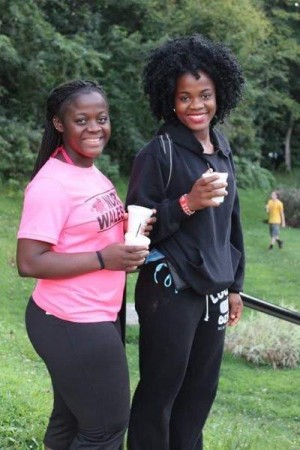
Yayou (L) and Maude (R) as active students in the North Penn community
“In America everybody pays taxes for you to go to school, but in Africa your parents have to work to send you to school so you have to take your education very serious because your mother is not going to sit there and sell water for the whole day to send you to school if you are not serious about school,” explained Yayou.
“You have to be serious about school. You can’t just quit school like you can in America, you do not have that advantage. The thing you are looking for is to get more education and get to your goal,” added Maude.
In Africa, none of the sisters grew up together. Though Maude and Felecia are biologically related, the hard times forced them to grow up distant from each other. Yayou grew up in a different tribe called Kpelleh. Maude and Felecia grew up in a tribe named Grebo. They were grouped in different places and Yayou and Felecia didn’t meet until before they left for America.
Maude’s Story
Maude was born in Liberia towards the end of the second Civil War. Because she was diagnosed with an illness as a baby and was not supposed to live long, the family moved to Maryland County to get treatment. Maude was sick on and off growing up.
“My father took me to a pastor in his homeland. The pastor prayed over me and she said one day I’d come to the United States. She said my future was bright and that I’d help bring some of my family to the United States,” said Maude. Maude later overcame her illness.
She was educated in a functioning damaged school. Because her parents couldn’t support her and because she wouldn’t get an education in the “bush”[forest land] she was sent into Monrovia, Liberia’s Capital, to live with her aunt who owned an orphanage. She lived there two years before her younger sister, Felecia, joined her. In 2007, at the age of eleven, Maude met Donna Mengel and Daniel O’Connell while they were on a mission trip to repair the damaged capital. Little did she know that these strangers at the time would soon become her adopted parents.
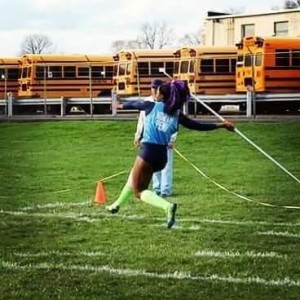
Maude Mengel-O’Connell throws the javelin for the NPHS Track and Field team.
“They were the first white Americans I had ever interacted with. I saw my adopt mom and she looked at me and I ran away. She was sitting on a flagpole step and I went to touch her hair and then I touched her little pinky. After that she looked to see who touched her pinky. She then said something to me, but I couldn’t understand her; she sounded like a bird to me,” Maude lightheartedly reflected.
Out of the hundreds of kids that were adoptable the Mengel-O’Connell’s opened up their home in America to Maude and her assigned brother Joseph, whom she met in the orphanage, so they could live a better life.
“Out of all the people she chose me because she loved me. She told me ‘God told me to pick you. I see a bright future for you,’” shared Maude.
At thirteen years of age, Maude was finally in America. She was put into 5th grade at North Wales Elementary School. While she was there she was doing first grade work because she basically had to start school all over again as she faced verbal barriers because she could not speak English. She took verbal English classes which made it easier to communicate. As she and Joe were the family’s first adopted children and were Africans, communications with their new family was difficult. It took her two years to master the English language.
“I felt alone and I felt like I didn’t belong. I felt if my sister came I’d have someone to spend time with. I also felt because we weren’t raised together our whole life I wanted her to come to America so she could be with me. I wanted her to know what having a sister feels like. My parents told me not to forget about your sister. They told me ‘If you go, ask if they can bring your sister.’”
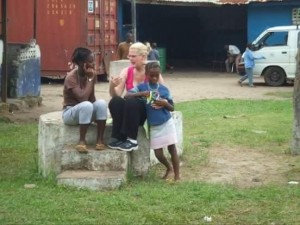
In Africa, before coming to America, Donna Mengel (center) gets to know Maude (right).
Eager for the opportunity to grow up with her sister, Maude asked her adopted parents if she could bring Felecia to America. They agreed with her that this would be a good thing for everyone.
“When she was adopting me, I told her I had a little sister who was with me and I wanted her to come but because they didn’t understand what I was saying, I had to leave Felecia behind. It took about a year or two for them to understand what I was saying and that’s how they got into the adoption papers and then they brought Felecia.”
Four years later Felecia came to America.
Felecia’s Story
When Felecia was a baby she was held to a different standard than her older sister Maude. The two grew up separately due to hard times. While Maude was sent to the orphanage, Felecia grew up with their parents. At the age of six she was sent to join Maude at the orphanage in order to receive a better education. Maude left for America a few years before Felecia did. Because she didn’t like the way she was treated at the orphanage, Felecia asked if she could move to a temporary home. A lady named Christine Norman, who was the daughter of a previous Liberian president, took Felecia into the compound she owned for little over a year. Here she met Yayou who was from a different tribe and came from a different orphanage. The two didn’t know they would be adopted into the same family and later become close sisters.
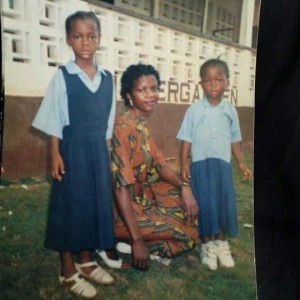
Picture L-R: Maude, her birth mother Elizabeth Moore, and Felecia
“We got along really well. When I first got there I was the only teenager so it was easy to get along with Yayou because she was a teenager. When you’re little you naturally clique with people your age.”
The two could relate because of their experiences. Life before for both Felecia and Yayou had been harsh so it was nice to have a home where they didn’t have to worry.
“Life was better. We didn’t have to worry about eating. We had basically everything we wanted. It was so different.”
She was then sent to her temporary home when she learned that there was an interest in adopting her by the same woman who had adopted Maude. She then spent the rest of her time in Liberia with her future sibling Yayou. Amogashe and Ammah, two boys from another tribe whom Yayou knew because they lived in the same orphanage, were supposed to be sent to America to live in the same family as the girls, but because of complications the girls showed up months after the boys.
Though she was happy to move to America, she was also worried about leaving her people behind.
“I was happy to be reunited with Maude because we never really lived together. Every time we did get a chance to live together she would move.”
When Felecia lived in the compound with Christine she had some interactions with white people and had an advantage over Maude with learning the English language. Though she knew the language, she had not yet mastered it.
“I could understand them, but they couldn’t understand me,” Felecia joked.
She later added the fears she had about coming to America.
“I was really worried about me speaking and people not understanding me. I was worried about their reactions.”
Felecia and Yayou were both placed in seventh grade at Pennbrook Middle School when they got to America. Because Felecia had lived in a compound where she could interact with white missionaries, it wasn’t too difficult for her to learn.
“For my first year or two I felt like an outsider. But in ninth grade I started to feel comfortable.”
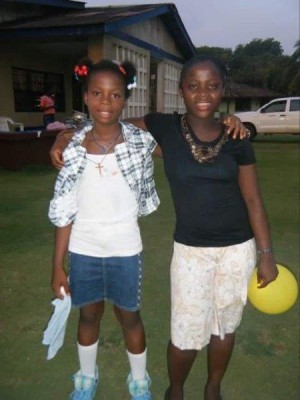
A young Felicia and Yayou enjoying some time together
Yayou’s Story
Yayou was born in Guinea and grew up in Liberia with her aunt and her children and her other cousins in Payneville, Liberia after her mother passed away. She grew up in hard times because her aunt was the only provider of the house. The large family lived in a small house made out of dirt.
“We had to worry about food and clothing. If your parent cannot afford it you cannot wear it.”
Because of the instability caused by the civil war, everybody was fighting for money. Bad soldiers attempted to rob the family. If they tried to fight back, the consequences could be deadly.
“One day I was with my aunt and some men came into my aunt’s house and tried to kill us but they began to speak the language of our tribe. My aunt had to speak the same language and it was the only way they would let her free. If they didn’t understand her, they would have continued to do what they wanted. Because she spoke the same language it signaled that she was a part of the same tribe. So they told her she had to go somewhere and go into hiding.”
Her aunt went into hiding in the bush [forest land] while Yayou was sent to an orphanage called Hannah B. Williams (H.B.W) to get a better education. In 2003 she left the H.B.W. orphanage home to transfer to the Phebe Gray orphanage home which was run by a Christian family. She transferred because the lady at the orphanage home was treating them poorly. She sold the food and starved the kids.
“She would sell the food to other people to make money. She would put sand in a bag and keep it. She would put a little bit of rice on top of the sand to fool the people who visited from the government. She would use the money to travel to America and to support her family.”
One day a government official came, he saw how many kids were outside and how skinny they were. Every child was moved from that orphanage and it was closed down. Yayou was then moved to the Phebe Gray orphanage where she couldn’t relate to the others because they had homes to go to during the summer.
“I felt left out because when we’d have summer vacation everyone’s parents would come get them but the kids who didn’t have a family would have to stay at the orphanage. For any mistake you make, they would beat you. When they learned I was going to be adopted they were hitting me more because they didn’t have the opportunity to come to America or send their children to America. I was tired of it and I decided to leave the orphanage home. I ran away and I slept on the streets. I stayed on the street for two days. I found my aunt and she took me back to the orphanage home.”
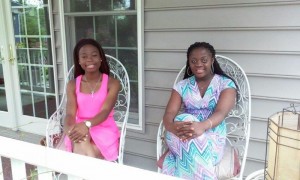
Growing Up: Felecia and Yayou enjoy time together this year.
The war had ended; her aunt was out of hiding. She now lived in a better house in the city.
“She told me that I should go back because she didn’t know how the owners of the orphanage home treated people. She thought she was doing the best for me to get a good education.”
While at the orphanage she met Christine Norman, the director of REAP, an organization where people from the United States go to Africa and stay in the town. She decided to take Yayou to the compound, where she would meet Felecia, because she knew that she would love Yayou and she thought she was smart. They stayed in the compound for almost two years.
Yayou reflected about her experience with the others at the compound.
“We didn’t really talk about our past we just accepted how life was.”
Felecia was already scheduled to come to America and Christine asked their adopted mom to adopt Yayou.
“I had a play mother and she ran this program called REAP. She told my mother here to adopt me because she said I was a cutie pie so that’s how I came to America.”
Because of the delay in their departure, Donna Mengel, their adopted mother sent money to support the girls’ education before they came to America. This gave them an advantage education-wise over Maude who did not have advanced education until she came to America.
With the support of her future adopted mother, and the help of the missionaries, she was prepared to move to America.
“We had a lot of white people in the compound. I had a white friend, who was a missionary, who would help me. She would say ‘You have to speak slowly for people to understand you.’ Though I spoke really fast and others couldn’t really understand me, she helped me. She would say, ‘If you go to America this is how you speak,’ and ‘This is the kind of people you work with.’
When Yayou first came to America she was comfortable with the fact that she was going to finally have a family. She wasn’t scared because she lived with a lot of people.
“The first week Maude and I didn’t get along. All the time she wanted to fight me for the remote,” Yayou joked.
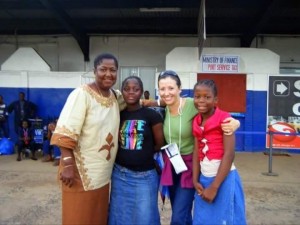
Pictured from L-R: Christine Norman, Yayou, Lauren Arrendondo, and Felecia
Unlike Felecia, Yayou didn’t feel insecure about her English.
“I don’t worry about what other people think because I know where I come from, and I don’t want to go back there.”
Though confident, she still faced verbal barriers.
“I understand them, but they don’t understand me because I speak so fast. If I take my time to speak to people they will understand me, but sometimes I just go over the limit because I don’t want to forget about my accent. I feel that if I lose my accent I lose a big part of me.”
She also talked about her experiences with making friends.
“I tried making friends with American people, but it was hard because they couldn’t understand me. When I was trying my best some still said comments that brought me down. When I would speak some would say ‘speak English.’”
“The first two years were difficult [7th and 8th grade]. I would go to school come home and do nothing,” Yayou said. She hadn’t branched out much besides middle school track, which was only in the spring.”
Adjusting to their new life
Though each have an individual story, they all share a common thread, living together in America. The three are now a part of a family of seven kids and attend and are enjoying North Penn High School.
“I feel like I have more of an advantage with learning now. My reading increased. It’s basically like everything got better because I learn more things,” said Felecia.
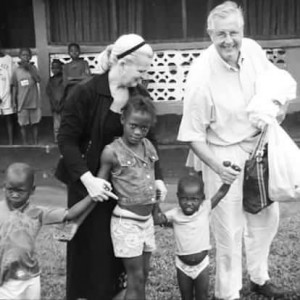
Donna Mengel, Daniel O’Connell, and Joe, Maude, and Comfort (still residing in Africa)
From the tutors at ADAPT to the many clubs, being a part of the North Penn community allows one to flourish not only educationally but as a person.
“I do love school since I’ve been here. The only thing I didn’t like was some of the students because I have seen people doing so much [bullying] to other students. Especially, I do not like that if you are from a different country [not my own experience but others] they look at you down. That really does hurt. Some people can’t talk for themselves and no one can help them,” shared Maude.
The culture in Liberia stressed fellowship and the girls were not prepared for some of the poorer American ways, particularly bullying and selfishness. Though not prepared for the mistreatment of one another, Maude admits that one thing has been a support for her and she is thankful for it.
“I do love the teachers. If you have problems speaking, family problems, or whatever the issue, they try their best to help you and they don’t tell everyone your business,” she explained.
North Penn’s many teachers, students, clubs, and activities have allowed the girls to feel at home. The girls branched out and made the North Penn community a little smaller by joining the girls track team.
Despite what they’ve been through in the past, they always have a positive outlook on everything and everyone, it’s just nice to know that there are still genuine people in the egotistical society we live in.
— Teammate Lauren Follis, on the Mengel-O'Connell family
“When I got involved in sports, it allowed me to meet a lot of new people,” Felecia added.
Their participation on the track team has scored many points for the team and has served as a positive spirit which uplifts their teammates.
“They’re really hardworking, genuine people who don’t really care what people think of them. They go to the beat of their own drum and it’s just nice to have people who don’t need to conform to other people’s standards to be happy. The Mengel-O’Connells are the Mengel-O’Connells and despite what they’ve been through in the past, they always have a positive outlook on everything and everyone, it’s just nice to know that there are still genuine people in the egotistical society we live in,” shared North Penn track teammate, Lauren Follis.
Though they’ve formed strong bonds with the students here at North Penn, they still keep strong bonds with their family back home.
All three of the sisters have expressed the desire to keep up with their family back in Africa and to return to their homeland in order to help others who have had to endure situations similar to theirs. They have made the most of today’s technology, primarily WhatsApp and Facebook, to stay in touch with what’s going on in Liberia.
“We all have the same goal. We all want to go back home so people will know that we were thinking about them and we didn’t forget them. When some people come to the United States, they do not think about their family anymore….that is not what we are doing. We are trying to go and spread that we are from here and because of that we have been a better person. If your family helps, you are supposed to look behind and thank them,” Maude explained.
The girls are thankful for their families back home, but they are also thankful for their parents in America. They have provided the girls with countless opportunities and unconditional love.



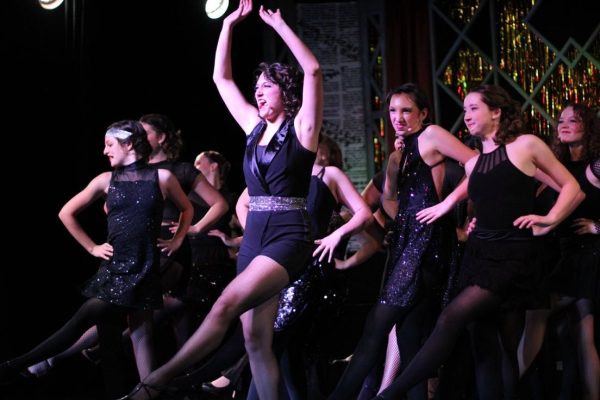
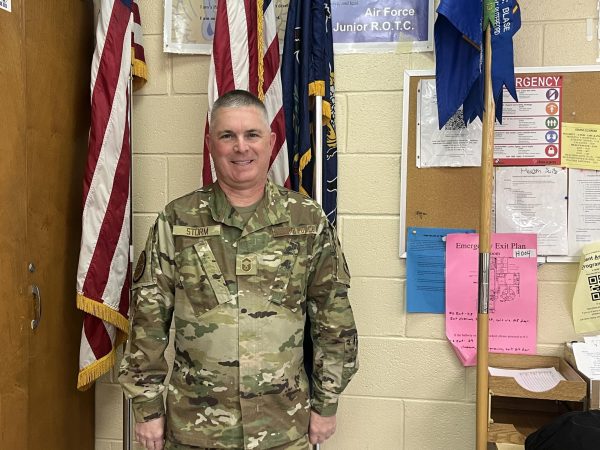
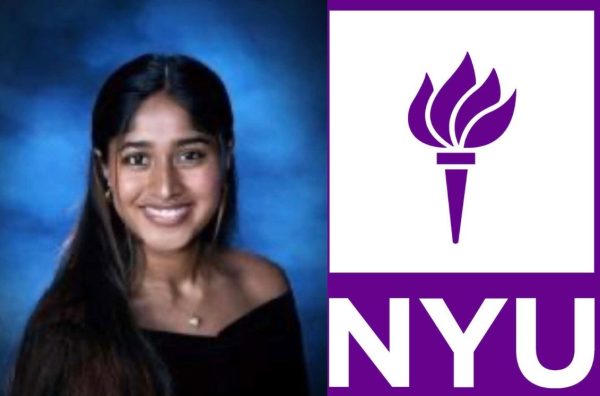
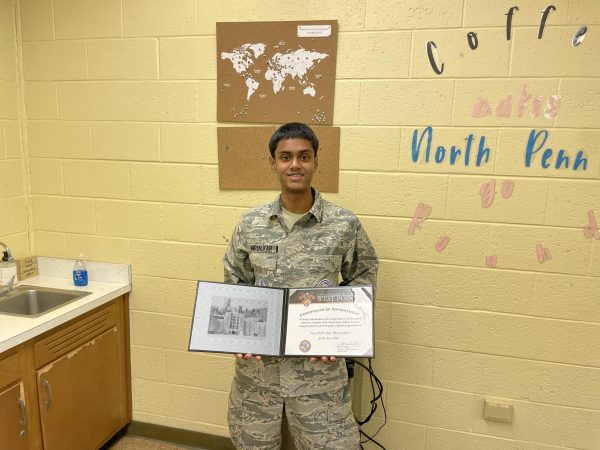
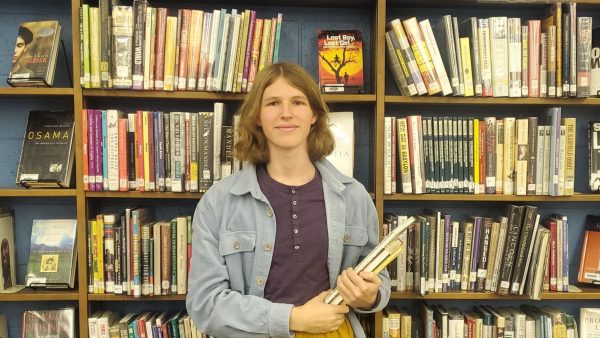
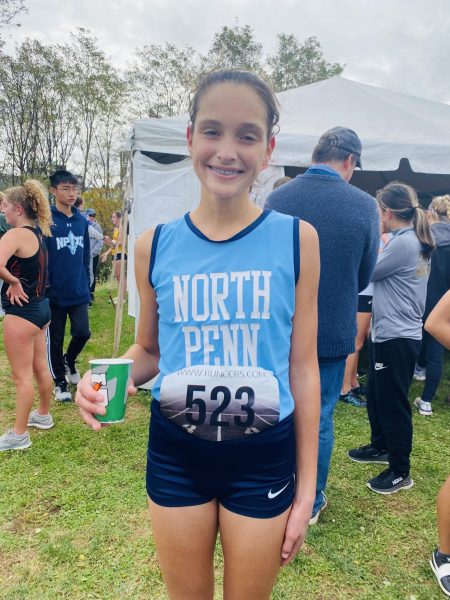
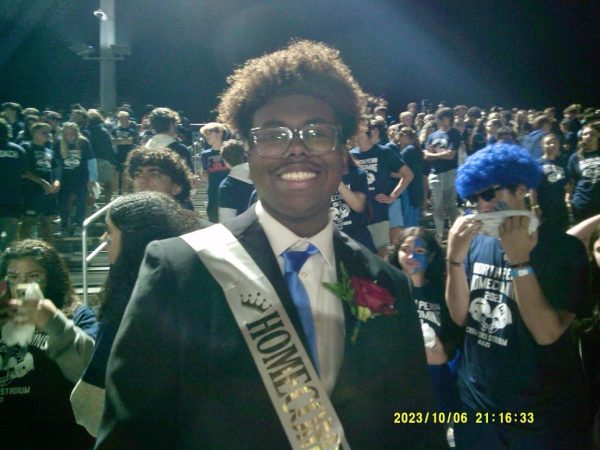
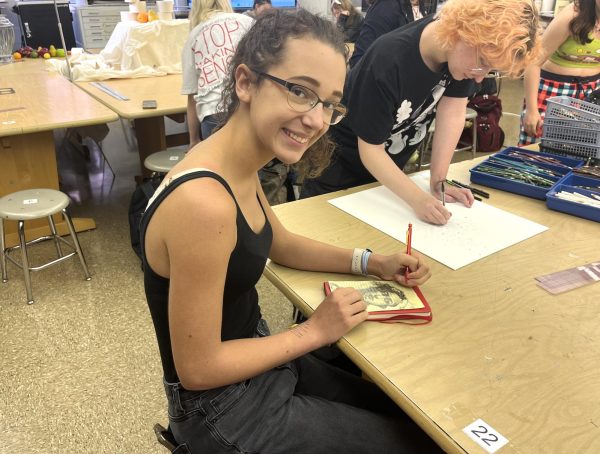
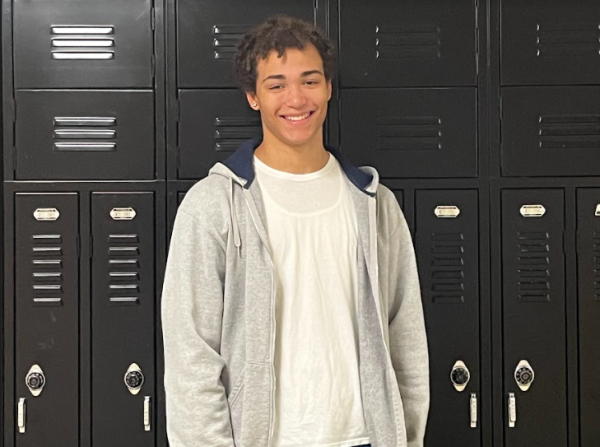
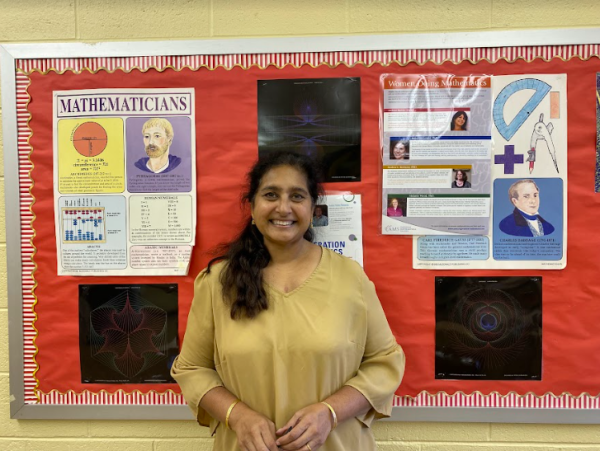
John Menyenya • Sep 25, 2018 at 9:51 am
Nice memories and great history of our country Liberia. I hope you guys will not forget the memories. Liberia is what we have in common. Together we stand and divided we will all fall. Bravo to the united States for mentioning peace in Liberia.
Tunde Szilagyi • Jun 7, 2016 at 5:10 am
I have worked with Yayou and Felecia closely when they were at PB middle school.Love them! I hope they’ll find happiness and success in life!
John teete • Jan 14, 2016 at 9:39 pm
I have seen them at the church they attend. Developing beautifully. Every child needs the opportunity to flourish whether here or in their home country.
Shonna Andrews • Jan 14, 2016 at 8:25 am
This story really touched my heart. We went to Liberia in 2011 to help build a school out in the bush. That’s where we met a young girl named Winnie. While we were there she was sent to Monrovia to live with her aunt and uncle so she could attend school. Once we got back to Monrovia we found Winnie again. Since then we have supported her. March 4-11, 2016 my oldest daughter AmandaRae and I are going to Liberia to bring Winnie home with us. This is such a blessing for our family. Winnie is now 15.
Mrs, Dummeldinger • Jan 13, 2016 at 11:17 am
What a beautiful article about three amazing young ladies!